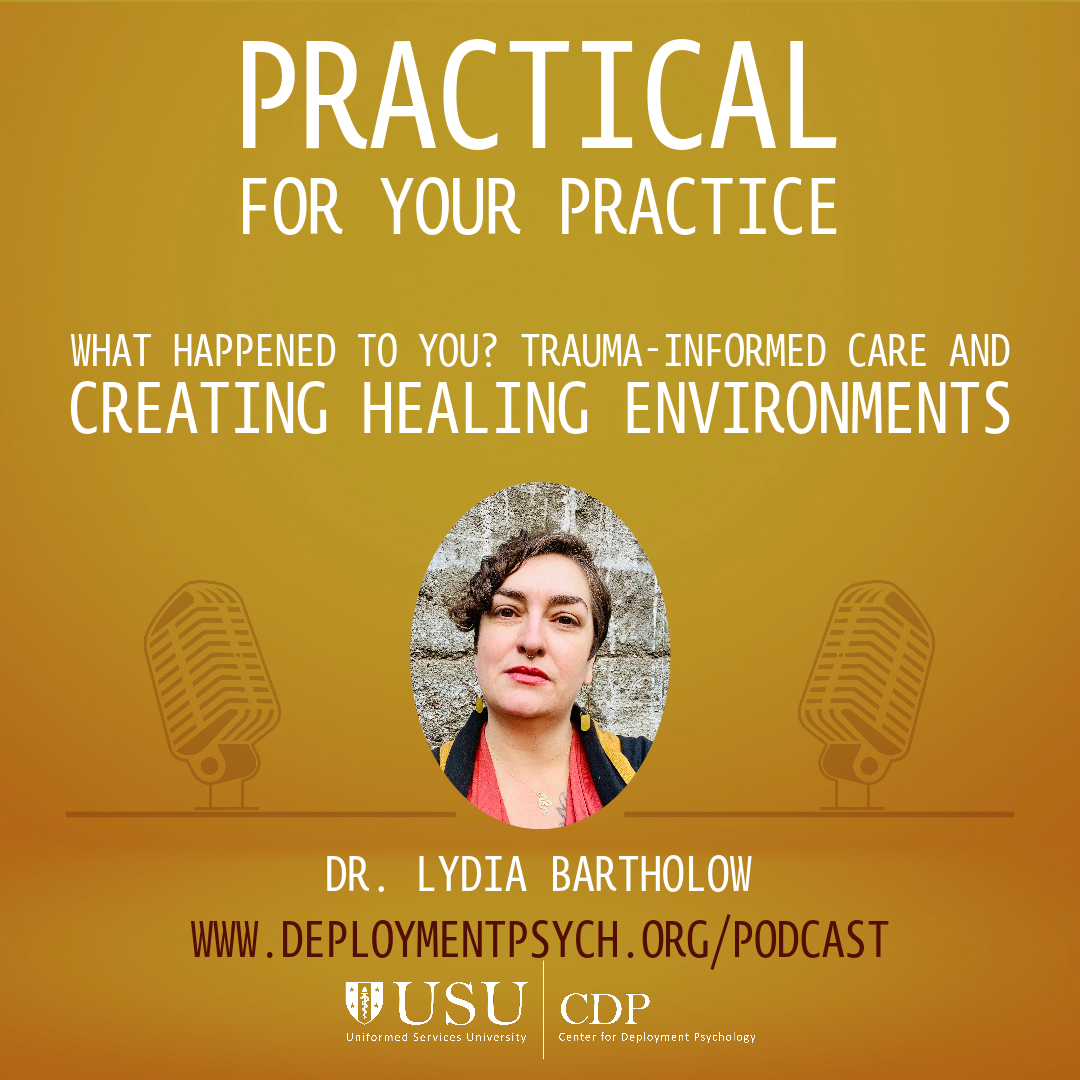 Episode 7, Season 4: What Happened To You? Trauma-informed Care and Creating Healing Environments
Episode 7, Season 4: What Happened To You? Trauma-informed Care and Creating Healing Environments
Guest: Lydia Bartholow, DNP, PMHNP, CARN-AP
Just about everyone in the world has experienced something that can be characterized as a trauma. Humans are resilient, and most people recover on their own and function well. Some continue to be affected by trauma long after the fact, and it is not always easy to identify who that may be and how a history of adversity may impact our interactions. There is a difference between trauma-specific care (such as Cognitive Processing Therapy or Prolonged Exposure therapy) and trauma-informed care.
Join us and our amazing guest, Dr. Lydia Bartholow, as we discuss trauma-informed care and how we can reorient from a “What’s wrong with you?” to a “What happened to you?” approach and implement psychological “universal precautions” to transform our systems to acknowledge a history of adversity.
 |
 |
 |
Show Notes:
Lydia Bartholow, DNP, PMHNP, CARN-AP, is a doctorally prepared psychiatric nurse practitioner with a specialty in addiction medicine and trauma-informed care. She currently staffs and directs a trauma informed urgent substance withdrawal management center. and is on faculty at UCSF where she teaches in the psychiatric nurse practitioner program. She speaks nationally on topics such as co-occuring disorders, harm reduction and substance use disorder care system improvement. She focuses all parts of her practice on radical public health, harm reduction and anti-oppression work. Lydia lives in Portland, OR, on Chinook, Kathlamet, Clackamas and Kalapuya land.
Resources:
Lydia Bartholow’s website: https://www.lydiabartholow.com/
Trauma-Informed Oregon: https://traumainformedoregon.org
SAMHSA.gov Trauma-informed Care: https://www.traumapolicy.org/topics/trauma-informed-care
Center for Healthcare Strategies’s Trauma-Informed Care Implementation Resource Center: https://www.traumainformedcare.chcs.org/
Calls-to-action:
Trauma-Informed Psychoeducation skill: (from motivational interviewing) Elicit–Provide–Elicit :
1) elicit previous information/experience and ask permission to provide more information,
2) provide new information,
3) elicit their feedback about how they might apply/use/integrate the information provided
Check out the resources at Trauma-Informed Oregon and SAMHSA (links above).
Subscribe to the Practical for Your Practice Podcast
Subscribe to the Cetner for Deployment Psychology's Monthly Email
Share your EBP questions, successes, missteps, or fears with us on www.speakpipe.com/cdpp4p
This podcast is produced by the Center for Deployment Psychology at the Uniformed Services University of the Health Sciences. The views expressed are those of the speakers and do not necessarily reflect the opinions of the Uniformed Services University, the Department of Defense, or the US Government. In addition, reference to any specific company, products, processes, or services does not necessarily constitute or imply endorsement by the Uniformed Services University, the Department of Defense, or the US Government.
